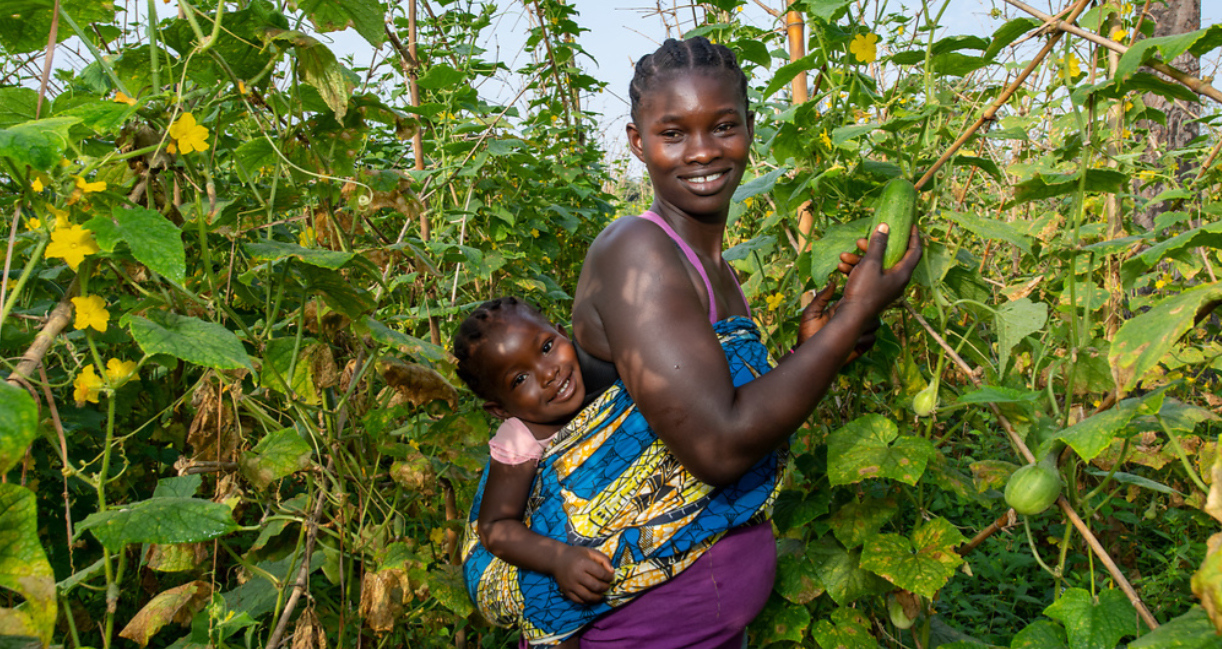Mother’s Day 2023: The world’s most underpaid job has the most epic payoff
Around the world, women do most of the unpaid work. On Mother’s Day, discover why we stand with moms 365 days a year.
BY SARAH ALLEN
All photos by Alison Wright.
Each morning, Patience, a mother in Liberia, cooks breakfast for her three children ages 13, six, and three. While her two eldest children attend school, she walks five kilometers to her plot of rented farmland. She often carries her youngest, Bendu, on her back as she works in the fields.
After a morning of tending to her crops, Patience takes a short break to cook lunch for herself and Bendu before moving on to afternoon work. After a long day in the fields, Patience returns home.
“Usually, I’m carrying the baby on my back, and each evening, I stop at the well to fetch the water, carrying a five-gallon jug on my head,” Patience says. “It takes over an hour to walk home. During the rainy season, it takes longer to walk through the water due to the heavy rains.”
In the evening, Patience does the household chores, including sweeping, cooking, and caring for the children. As the main income earner in her home, she provides not only for her children, but also helps support her mother and aging grandmother.
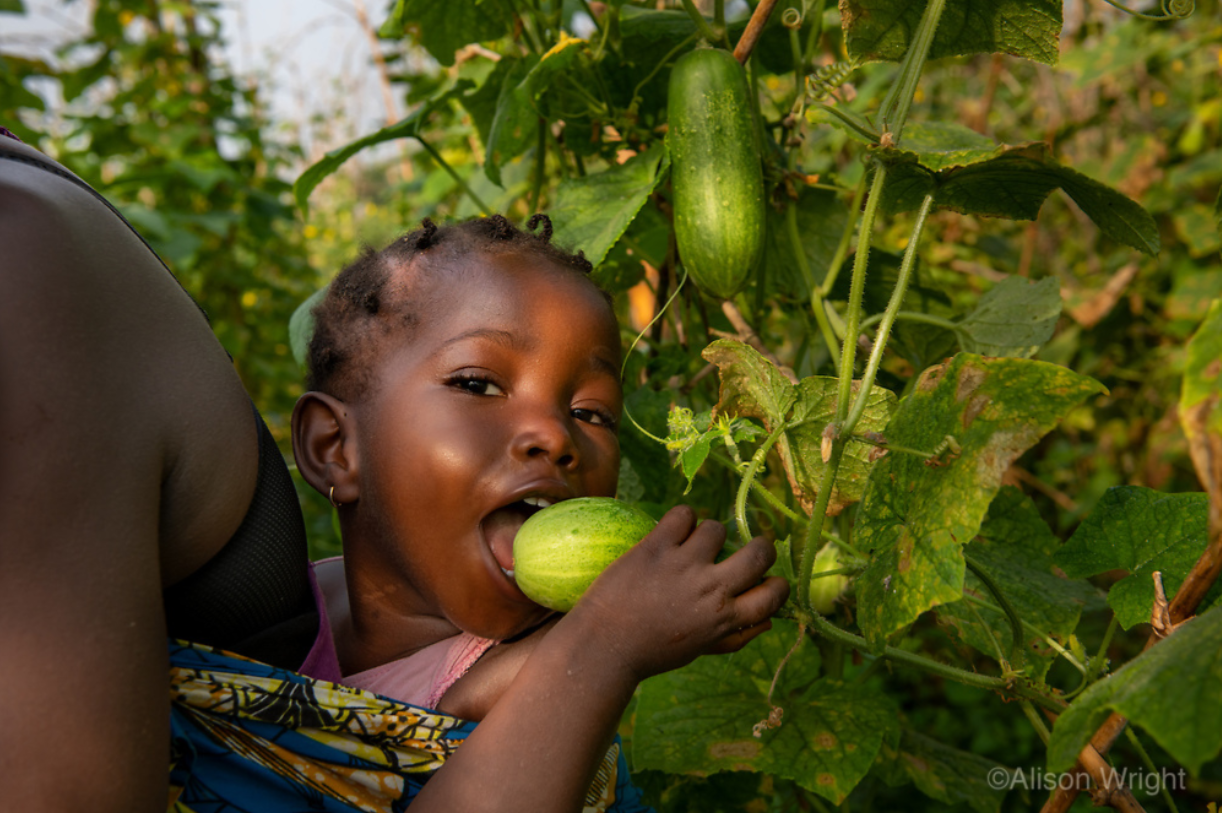 Patience’s daughter, Bendu, happily eats a cucumber while Patience works in her field.
Patience’s daughter, Bendu, happily eats a cucumber while Patience works in her field.
The motherhood penalty
Patience’s situation is not unique. Around the world, women do most of the unpaid work, including child care, whether they are a stay-at-home caregiver or a working mom. In the Global South, this work often includes not only cooking, cleaning, running errands, shopping, and caring for children, but also other labor intensive tasks such as farming and collecting water or firewood.
Outsourcing child care is not an affordable or realistic option for most women in the Global South, and like Patience, the most vulnerable mothers can’t afford to stop earning income. Mothers are often burdened with both full-time work and full-time caregiver duties.
Around the world, women spend an average of three to six hours daily on unpaid care activities, compared to men who average between half an hour and two hours. Overall, women spend two to ten times as much time on unpaid care activities as men.
In the United States, these trends persist regardless of parents’ employment status, income, or education levels. That means that even for families with two parents working full-time and earning comparable incomes, women still shoulder a disproportionate caregiving burden. These unpaid responsibilities perpetuate gender inequality and often prevent women from fulfilling their aspirations.
A 2021 Salary.com analysis estimated that stay-at-home moms are worth an average salary of $184,000 based on the hours they spend on unpaid care duties and the market rates for the jobs they perform such as caring for children, shopping and cooking for the family, teaching and tutoring, and managing family finances.
The status quo is unacceptable. By investing in moms, we can promote gender equality and build wealthier, healthier, and happier families and communities. Here are three big benefits of investing in moms.
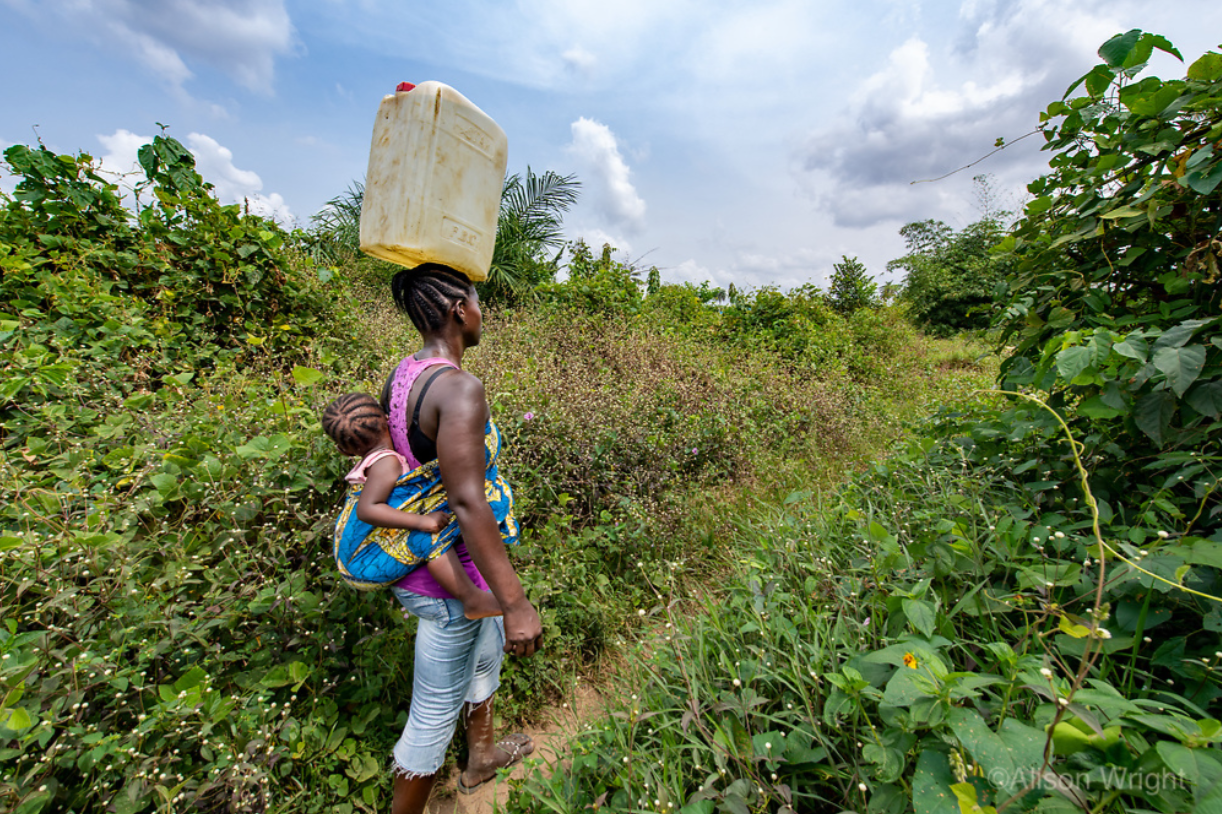 Patience walks home from the farm with a jug of water on her head and baby Bendu on her back.
Patience walks home from the farm with a jug of water on her head and baby Bendu on her back.
Three big benefits of investing in moms
1. Boosting the economy
Time spent on unpaid care work limits women’s employment opportunities, earnings, economic security, and upward mobility. In countries with a wider gendered care gap, women tend to face higher wage inequality and are more likely to have vulnerable jobs. It’s no coincidence that globally, women are more likely than men to be in poverty.
On the flip side, unpaid care work underpins our global economy. Countries with less inequality in unpaid care work tend to be wealthier. Unpaid childcare is an indispensable job that contributes to the prosperity of our communities. We must start treating unpaid care work as an equally valuable contribution to the economy and society as paid work, something that both women and men are responsible for. Studies show that investing in childcare for women could add $3 trillion to the economy every year.
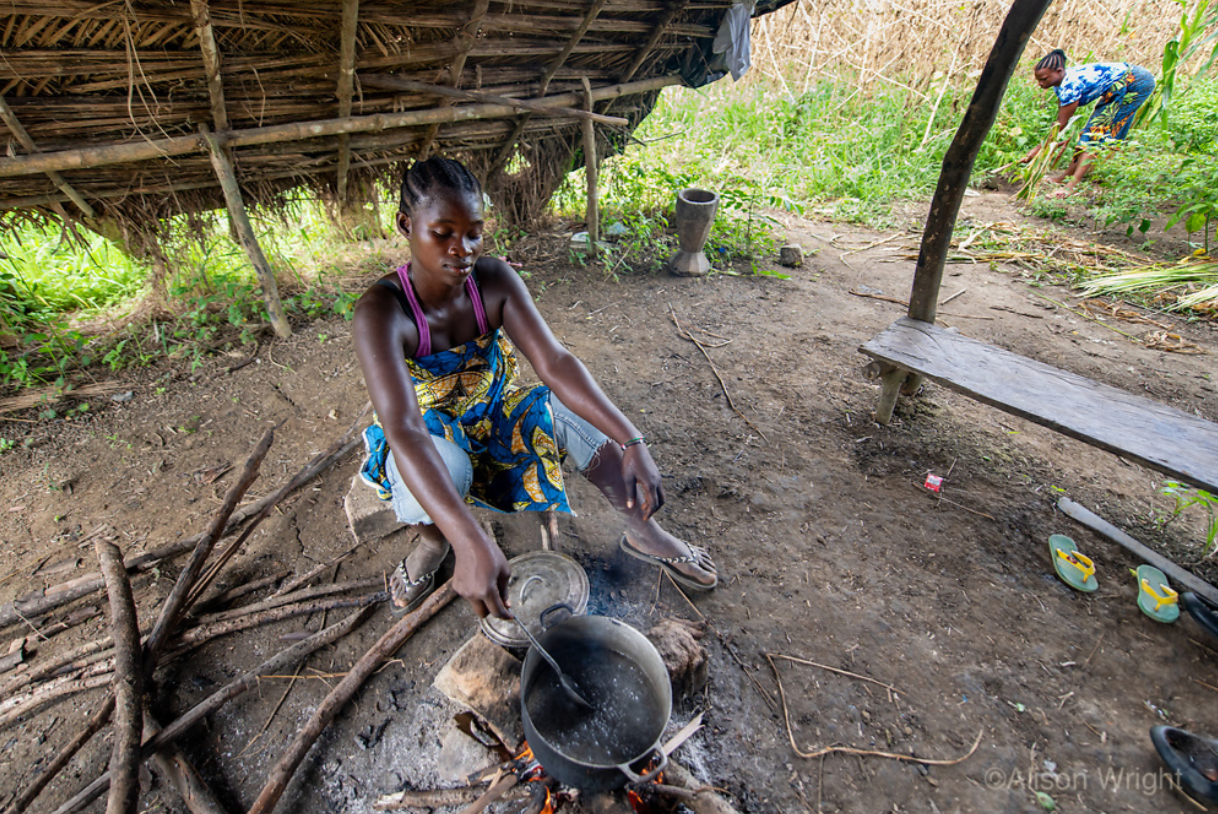 Patience prepares to cook lunch for herself and her baby in a shelter at the field where she farms.
Patience prepares to cook lunch for herself and her baby in a shelter at the field where she farms.
2. Breaking the cycle of gender inequality
According to the OECD, the unequal distribution of childcare responsibilities is linked to discrimination in social institutions and harmful gender stereotypes. And when mothers have no choice but to find paid work, their older children, often their daughters, frequently drop out of school to care for their siblings, perpetuating a cycle of gender inequality.
While the gendered care gap is reinforced by social norms and stereotypes, it also perpetuates them. Addressing these entrenched gender stereotypes and norms is crucial in redistributing care responsibilities across genders and promoting women’s social and economic well-being.
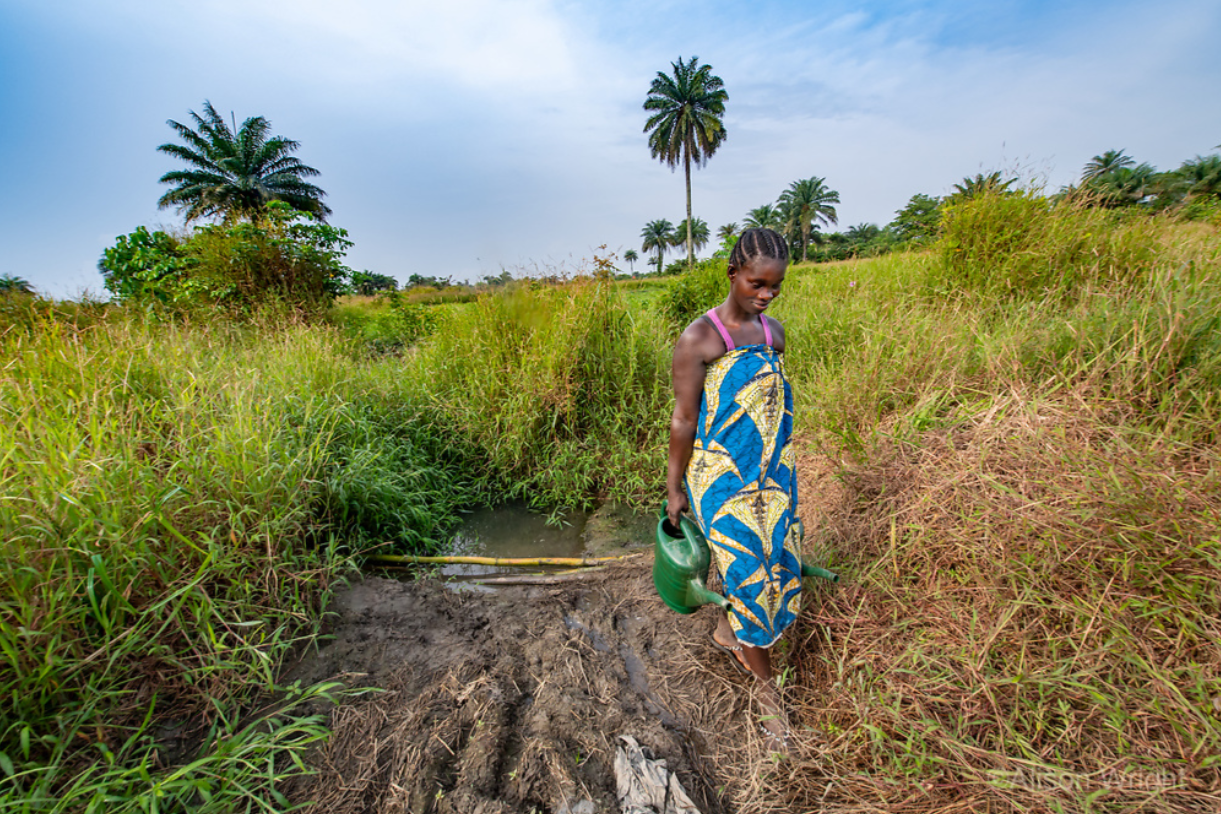 Patience gathers water in her watering cans to tend to her crops.
Patience gathers water in her watering cans to tend to her crops.
3. Improving health and well-being
Care work can be deeply satisfying and meaningful, but it is also physically and mentally taxing. Moms may also experience guilt when they leave their children to go to work, or guilt about not working if they choose to stay at home to care for their children. As a result, unpaid caregivers face high levels of stress. An analysis of mental health data in Africa, Asia, and South America found that unpaid caregivers had higher levels of anxiety and depression than non-caregivers.
The burden that women face also impacts their children: When women must work but cannot afford child care, children’s development, safety, and overall well-being can be put at risk. And when a mother experiences physical or mental health challenges, their entire family is impacted. Providing access to safe, quality, affordable childcare alleviates harmful stress and improves children’s well-being.
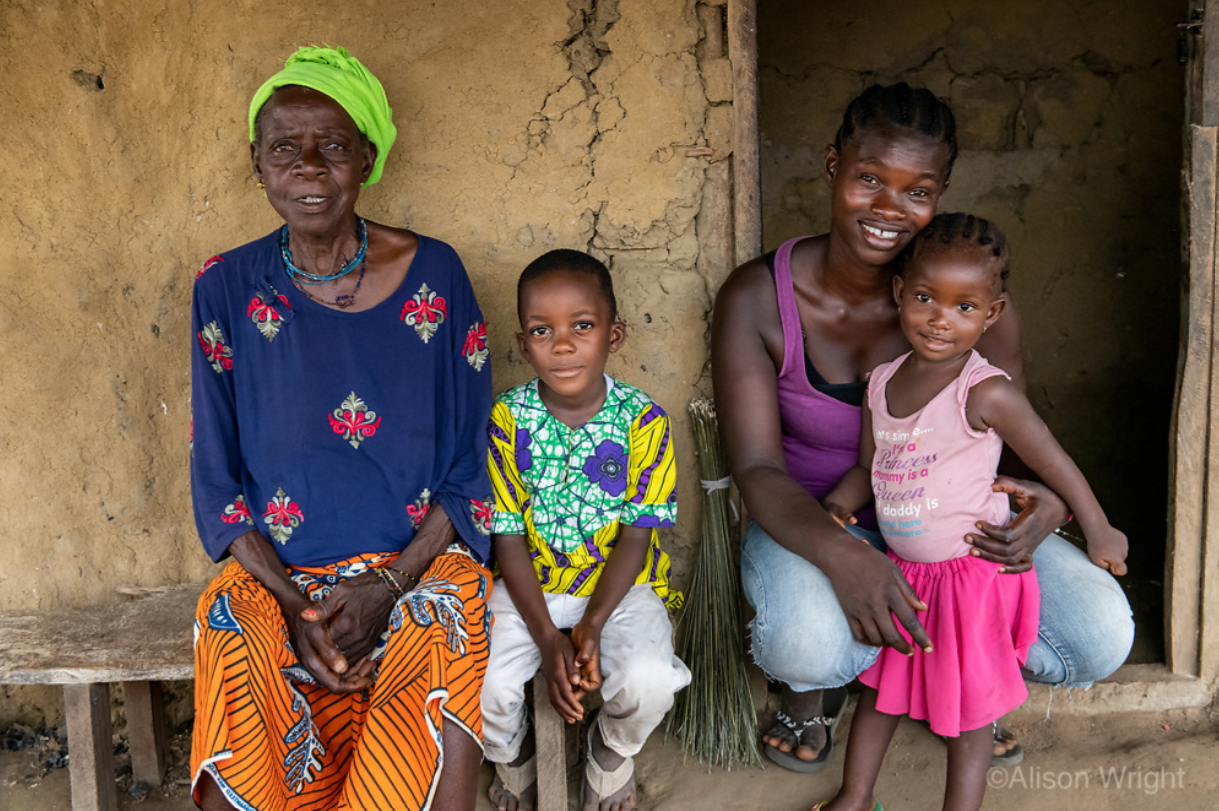 Patience poses outside of her home with her grandmother and two of her children.
Patience poses outside of her home with her grandmother and two of her children.
When mothers thrive, communities thrive
By investing in mothers—like Patience—we can enable women, their families, and communities to thrive.
When we first met Patience, she was growing cucumbers on a small patch of land, earning a modest and unpredictable income. But after participating in BRAC’s agriculture training, she gained the tools and skills to grow new crops, improve her productivity, and grow her income. Now, she leads a cooperative of 20 farmers in her community, who grow a variety of crops year-round. Patience earns most of the income that supports her household. And, her children are healthier and happier: They can now depend on nourishing meals, consistent health care, and an education.
BRAC’s programs help mothers learn new skills, start businesses, gain control of their finances, and improve their health and status. They create early childhood development opportunities and enable mothers to send their children to school so they can participate in the workforce and help transform gender norms that hold women back.
Being a mom is the world’s most underpaid job—but it also has the most epic payoff in terms of its benefits to the well-being of children, families, and society. Valuing and investing in mothers like Patience starts a ripple effect: Equipped with opportunities, support, and hope, mothers can escape the cycle of gender inequality and poverty and forge better futures for themselves, their families, and their communities.
Sarah Allen is Communications Manager at BRAC USA.
